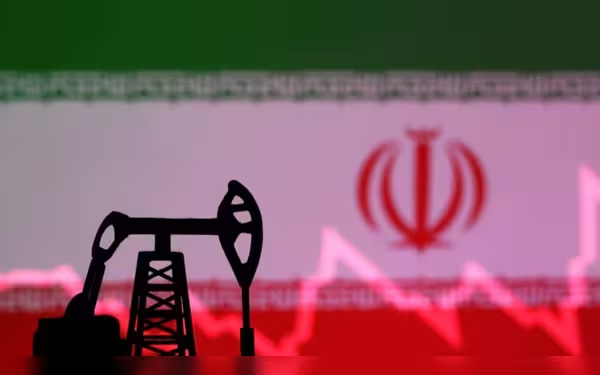Saturday, November 16, 2024 07:07 PM
Iran Oil Minister Visits Kharg Island Amid Israeli Strike Concerns
- Iran's oil exports reach 1.7 million barrels per day.
- Paknejad emphasizes security of energy facilities.
- China remains Iran's largest oil customer.
 Image Credits: channelnewsasia
Image Credits: channelnewsasiaIran's oil minister visits Kharg Island amid fears of Israeli strikes, emphasizing energy security and rising oil exports.
In a significant development, Iran's oil minister, Mohsen Paknejad, recently visited Kharg Island, which is home to the country's primary oil export terminal. This visit took place on October 6, amidst rising tensions and fears of potential Israeli strikes on Iranian energy facilities. The backdrop of this visit is marked by an Israeli military spokesman's statement indicating that Israel would respond to a missile attack from Tehran when deemed appropriate.
According to reports from the oil ministry's news website, Shana, Paknejad's visit included discussions with a naval commander, Mohammad Hossein Bargahi, focusing on the security of Iran's South Pars gas platforms. This area is crucial for Iran's energy exports, as approximately 90 percent of the country's oil is shipped from the Kharg Island terminal. The terminal itself boasts a storage capacity of 23 million barrels of crude oil.
Despite facing stringent US sanctions, Iran's oil exports have surged this year, reaching nearly 1.7 million barrels per day. This increase is particularly noteworthy given that Iran is a member of the Organization of the Petroleum Exporting Countries (OPEC), contributing around 3.2 million barrels per day to global production. The majority of Iran's oil and gas resources are located in the southern regions of the country, further emphasizing the strategic importance of Kharg Island.
During his visit, Paknejad highlighted the vital role of the Islamic Revolutionary Guard Corps Navy in ensuring the security of oil and gas facilities. This statement underscores the Iranian government's commitment to protecting its energy infrastructure amid external threats.
China remains Iran's largest oil customer, reportedly importing between 1.2 to 1.4 million barrels per day from Iran in the first half of 2024. This relationship is significant, especially as China does not recognize US sanctions, allowing Iran to maintain a steady flow of oil exports despite international pressures.
As the situation unfolds, the implications of these developments extend beyond Iran's borders. The potential for conflict in the region could have far-reaching effects on global oil markets and energy security. Observers will be closely monitoring how Iran navigates these challenges while striving to protect its vital energy resources.













